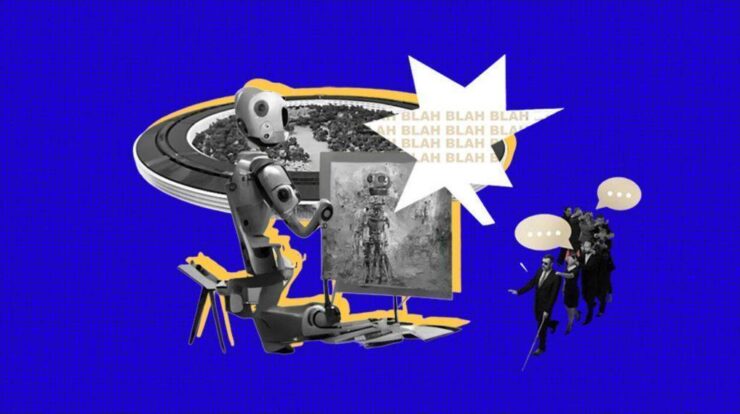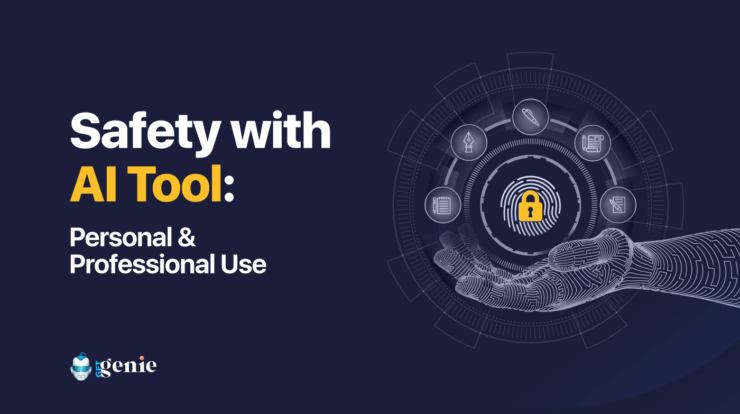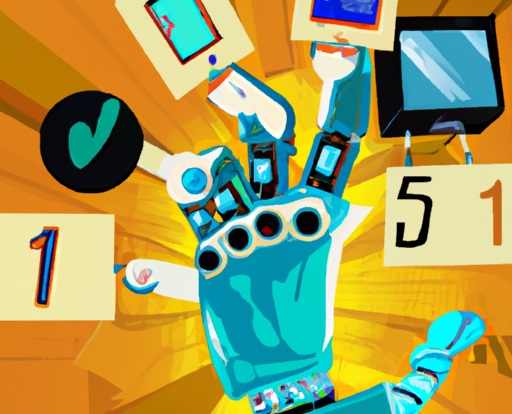
In today’s rapidly advancing world, one can’t help but wonder if artificial intelligence (AI) will ever be able to truly match the creative capabilities of human authors. The question on everyone’s mind is: will AI never replace authors? As technology continues to redefine countless industries, including literature, it becomes vital to explore the possibilities and limitations of AI in the realm of storytelling. While some argue that AI can replicate certain elements of writing, the unique and imaginative spirit that authors bring to their craft remains a distinct human characteristic that may never be fully replicated by machines.
The Rise of AI in Writing
Introduction to AI in writing
In recent years, we have witnessed significant advancements in Artificial Intelligence (AI) technology, and its influence has permeated various sectors, including the field of writing. AI has rapidly gained ground as a powerful tool for authors, offering benefits such as improved efficiency, enhanced grammar checking, content generation, and translation capabilities. However, as with any technological innovation, there are limitations to consider. This article aims to explore both the benefits and limitations of AI in writing, as well as the future implications it holds for the writing industry.
Advancements in AI technology
AI technology has made remarkable progress in the field of writing, with algorithms and machine learning algorithms being developed to mimic human-like writing capabilities. Natural Language Processing (NLP) techniques have enabled AI systems to understand and generate text that is nearly indistinguishable from a human’s writing. With the advent of deep learning neural networks, AI writing models have become increasingly sophisticated, capable of producing highly coherent and contextually relevant content.
Implications for the future of writing
The rising influence of AI in writing has sparked conversations about the future of the profession. As AI continues to evolve, questions arise regarding the role of human authors and how they will coexist with this rapidly advancing technology. Will AI completely replace authors? Or will it serve as a collaborative tool, enhancing human creativity and productivity? To delve into this topic, we must first examine the benefits that AI brings to the writing process.
Benefits of AI in Writing
Improved efficiency and productivity
One of the most apparent benefits of AI in writing is the improvement in efficiency and productivity it offers. AI-powered tools can automate various mundane and time-consuming tasks, such as proofreading, formatting, and organizing information. This automation allows writers to focus more on their creative process, saving them valuable time and energy.
Enhanced language and grammar checking
AI algorithms have greatly advanced language and grammar checking capabilities. AI writing tools can detect common errors, suggest improvements, and even provide explanations for grammatical rules. These tools act as a valuable resource for writers, helping them refine their work and produce error-free content.
Content generation and idea suggestions
AI technology has the ability to generate content autonomously, providing unique insights and creative ideas. By analyzing vast amounts of data, AI models can generate written content on a given topic, serving as an invaluable resource for writers seeking inspiration. Additionally, AI can suggest alternative phrasing or offer new perspectives, enhancing the overall quality of the writing.
Translation capabilities
Language barriers are no longer an insurmountable obstacle for writers, thanks to AI-powered translation tools. These tools can accurately and quickly translate text from one language to another, allowing writers to reach a broader audience and explore different markets. The availability of translation capabilities broadens the scope of writing and fosters cross-cultural understanding.
The Limitations of AI in Writing
Lack of creativity and originality
One of the notable limitations of AI in writing is its struggle to replicate the innate creativity and originality that human authors possess. While AI models can generate content that may be contextually relevant and grammatically correct, they often lack the ability to produce truly groundbreaking and imaginative work. The spark of inspiration and unique perspective that comes from human creativity is still unmatched by AI technology.
Difficulty in capturing human emotions and nuances
Another limitation of AI in writing lies in its ability to capture and convey human emotions and nuances effectively. Writing, especially fiction and poetry, often relies on the ability to evoke emotions and create deep connections with readers. While AI can generate text that appears human-like, it often falls short when it comes to accurately depicting the intricacies of human feelings and experiences.
Limited understanding of context and subtleties
Despite significant advancements, AI still struggles with fully understanding the context and subtleties of human communication. The interpretation of humor, sarcasm, irony, and cultural nuances poses challenges for AI models. Human writers possess a deep understanding of these contextual factors, allowing them to create content that resonates with readers on a more profound level.
Ethical concerns and biases
As AI systems continue to learn and adapt from massive amounts of data, ethical concerns regarding biases emerge. Data used to train AI models can be biased and reflect societal prejudices. If not carefully addressed, AI-generated content may propagate existing biases or inadvertently endorse controversial viewpoints. Striking a balance between the capabilities of AI and responsible and unbiased content creation becomes crucial for ethical and inclusive writing.
Legal and copyright issues
The rise of AI in writing also raises legal and copyright concerns. With AI capable of generating content, it becomes challenging to determine the ownership and originality of AI-generated works. Questions surrounding copyright infringement and intellectual property rights arise, requiring legal frameworks to adapt to these new complexities and safeguard the rights of both humans and AI systems.
The Role of AI as a Collaborative Tool
Assisting writers with research and fact-checking
AI serves as an invaluable collaborator for writers when it comes to research and fact-checking. With its ability to analyze vast amounts of information quickly, AI can help writers gather accurate and relevant information in a fraction of the time it would take a human researcher. By providing writers with reliable sources and data, AI enables them to produce well-informed and evidence-based content.
Providing suggestions and revisions
AI writing tools can provide writers with suggestions and revisions, enhancing the quality and readability of their work. These tools offer insights into sentence structure, vocabulary, and overall coherence, acting as a digital writing coach. By providing constructive feedback and fresh perspectives, AI empowers writers to refine their writing skills continuously.
Building datasets and organizing information
AI systems excel in organizing large volumes of information, making them an invaluable resource for writers. They can build datasets and extract relevant information, helping writers streamline their research process. AI-powered knowledge graphs and databases enable writers to navigate complex topics efficiently, making it easier to synthesize and present information to readers.
Automating repetitive and mundane tasks
AI’s ability to automate repetitive and mundane tasks is a game-changer for writers. From formatting to citation management, AI systems can handle many of the administrative aspects of writing, freeing up writers to focus on the creative aspects of their work. This automation contributes to increased productivity and efficiency, allowing writers to spend more time on the tasks that require human intuition and expertise.
The Importance of Human Touch in Writing
Uniqueness of human creative expression
While AI can replicate certain aspects of writing, The uniqueness of human creative expression remains unmatched. Human authors bring their personal experiences, perspectives, and emotions to their writing, creating a distinct voice that captivates readers. The diversity of human creativity ensures an array of writing styles, genres, and narratives that would be challenging for AI to replicate fully.
Emotional connection between authors and readers
Writing is not merely about conveying information, but also about forging an emotional connection between authors and readers. Human authors have the ability to tap into their own emotions, express vulnerability, and create empathy through their writing. These emotional connections foster a deeper understanding and engagement with the content, something AI is still striving to accomplish.
Empathy and perspective-taking
Empathy and perspective-taking are critical elements of effective writing. Human authors possess the inherent ability to understand and narrate experiences from various points of view. This empathic understanding allows them to create multidimensional characters, explore complex themes, and challenge societal norms. AI, with its lack of human experiences, finds it challenging to replicate this level of empathy and perspective-taking.
Authenticity and personal experiences
Authenticity plays a crucial role in successful writing. Human authors bring their personal experiences, values, and beliefs into their work, creating a genuine and relatable narrative. Readers resonate with authenticity, as it provides them with a glimpse into the human condition. AI-generated content, although contextually accurate, may lack the depth and personal touch that comes with lived experiences.
The Future of AI and Writing
AI as a complementary tool to human authors
As we look to the future, it is evident that AI will not completely replace human authors but rather serve as a complementary tool. AI can assist and enhance the writing process, helping authors overcome limitations and providing valuable insights. The collaboration between humans and AI has the potential to revolutionize the writing landscape, enabling authors to produce higher quality content in a more efficient manner.
Exploring collaborative AI-human writing processes
The future of writing may lie in exploring collaborative AI-human writing processes. Rather than AI solely generating content, it can be used in tandem with human authors in a symbiotic relationship. AI can provide writers with suggestions, assist in research, and automate mundane tasks, allowing authors to channel their creativity and expertise into crafting compelling narratives.
Ethical considerations and regulatory frameworks
As AI continues to evolve, ethical considerations and regulatory frameworks must be developed to ensure responsible and ethical AI usage in writing. These frameworks would address concerns such as bias and ownership, protect intellectual property rights, and promote inclusive and unbiased content creation. Collaboration between policymakers, industry professionals, and AI developers is vital in creating a sustainable and ethical future for AI in writing.
Adapting to changing writing landscape
The rapid advancements in AI technology call for adaptability within the writing industry. Authors, publishers, and writing professionals need to embrace and leverage AI tools to remain competitive in a changing landscape. Investing in AI-related skills and staying informed about the latest AI developments will not only enhance the quality of writing but also ensure the continued relevance and success of authors in a technologically driven world.
Impacts on the Publishing Industry
Automated content creation and distribution
The rise of AI in writing brings significant impacts on the publishing industry, particularly in terms of automated content creation and distribution. AI-powered systems can generate vast amounts of content, catering to the ever-growing demand for various written materials in digital spaces. Furthermore, AI algorithms can analyze user preferences and behaviors, allowing for personalized content recommendations and targeted marketing strategies.
Improved accessibility and inclusivity
The accessibility and inclusivity of written content are greatly enhanced by AI technology. AI-powered language translation and text-to-speech capabilities break down language barriers, making written material accessible to a broader audience. Moreover, AI-driven content generation can provide diverse perspectives and representations, promoting inclusivity and diversity in literature.
Challenges and opportunities for authors and publishers
With the rise of AI, authors and publishers face both challenges and opportunities. AI-generated content poses challenges in terms of originality, creativity, and maintaining the human voice in writing. However, it also opens up opportunities for authors to reach wider audiences, explore new genres, and streamline their writing process. Publishers can leverage AI to automate editorial processes, enhance market research, and personalize content distribution.
Reader preferences and acceptance of AI-generated content
The acceptance of AI-generated content by readers is a crucial factor in the future of writing. It is essential to strike a balance between AI-generated content and human-created content to meet readers’ expectations and preferences. While some readers may embrace AI-generated content for its efficiency and accuracy, others may prioritize the authenticity and emotional connection that comes with human-authored works. The publishing industry must navigate this delicate balance to ensure readers remain engaged and satisfied.
Preserving Human Creativity in the Digital Age
Valuing human imagination and innovation
Preserving human creativity in the digital age is essential to maintain the richness and diversity of literature. Human authors possess the unique ability to imagine and innovate, pushing the boundaries of storytelling and challenging societal norms. Valuing and nurturing human imagination is vital to ensure that the writing landscape remains vibrant and continues to captivate readers.
Cultivating human creativity and critical thinking
The cultivation of human creativity and critical thinking is paramount in the face of advancing AI technology. Creativity is a deeply human characteristic that AI cannot fully replicate. Education systems, writing programs, and creative communities must emphasize the development of creative and critical thinking skills to empower authors to keep pushing the boundaries of literature.
Resisting the complete automation of creative processes
While AI can enhance productivity and streamline certain aspects of the writing process, it is crucial to resist the complete automation of creative processes. Embracing technology while preserving the human element in writing helps maintain the distinctiveness and authenticity of human creativity. Striking a balance between efficiency and human expression will ensure that literature remains a compelling and meaningful art form.
The Emotional and Cultural Significance of Authors
The power of storytelling and human connection
The emotional and cultural significance of authors lies in their power to tell stories and forge human connections. Writing has always been a medium through which people express their thoughts, emotions, and experiences. Authors possess the ability to touch hearts, challenge perspectives, and transport readers to different worlds through their storytelling. The human touch in writing evokes empathy, fosters understanding, and creates lasting connections between authors and readers.
Diverse voices and representation in literature
Human authors bring a diverse range of voices and perspectives to literature, ensuring a rich tapestry of narratives. The inclusion of diverse voices is essential for fostering inclusivity and representing different communities and cultures. Human authors can authentically depict lived experiences, shedding light on societal issues and promoting empathy. It is crucial to preserve the role of human authors in ensuring representation and diverse storytelling.
Preserving cultural heritage and traditions
Authors play a significant role in preserving cultural heritage and traditions. Through their writing, they capture the essence of a particular time, place, or community, immortalizing cultural aspects that might otherwise be lost or forgotten. The preservation of cultural heritage and traditions through literature showcases the beauty and diversity of human experiences, enhancing our collective understanding and appreciation of different cultures.
Importance of the author-reader relationship
The author-reader relationship is a vital aspect of the writing experience. Authors provide readers with insights, emotions, and perspectives that enrich their lives and broaden their horizons. This bond between authors and readers fosters a sense of community, creating a space for dialogue, interpretation, and shared experiences. Human authors have an innate ability to establish this connection, as they understand the nuances and desires of their readers in a way AI cannot replicate.
Finding a Balance Between AI and Authors
Identifying the strengths and limitations of AI
To find a balance between AI and authors, it is crucial to identify the strengths and limitations of AI technology. AI excels in tasks such as research, fact-checking, and organizing information, allowing authors to work more efficiently. However, it falls short in areas such as creativity, emotional connection, and understanding human nuances. By understanding these strengths and limitations, authors can effectively leverage AI as a tool while preserving their unique creative abilities.
Leveraging AI to enhance human creativity and productivity
AI can be leveraged as a tool to enhance human creativity and productivity. By utilizing AI-powered writing assistants, authors can receive valuable suggestions, identify errors, and streamline their writing process. AI-generated content can serve as a source of inspiration and ideas, helping authors overcome creative blocks. Ultimately, AI should be seen as a collaborative partner, allowing authors to harness its benefits while retaining their individuality and distinct voice.
Promoting ethical and responsible AI usage
Ethical considerations should be at the forefront of AI usage in writing. The responsible development and deployment of AI systems are crucial to ensure inclusivity, accuracy, and fairness. This includes addressing biases in training datasets, ensuring transparency in AI-generated content, and respecting intellectual property rights. By promoting ethical and responsible AI usage, the writing industry can maintain integrity, trust, and authenticity in the digital age.
Safeguarding the human element in writing
In the pursuit of a harmonious coexistence between AI and authors, it is essential to safeguard the human element in writing. Authors must continue to cultivate their creativity, nurture their unique perspectives, and embrace their emotional connection with readers. By preserving the human touch, the writing industry can combine the capabilities of AI with the depth and authenticity that only human writers can provide.
As we navigate the rise of AI in writing, it is crucial to embrace the benefits it offers while upholding the value of human creativity, emotions, and authentic storytelling. The future of writing lies in forging a balanced relationship between AI and authors, one that leverages the strengths of technology while cherishing the rich tapestry of human expression. By embracing this balanced approach, we can ensure that the art of writing continues to captivate and inspire readers for generations to come.






